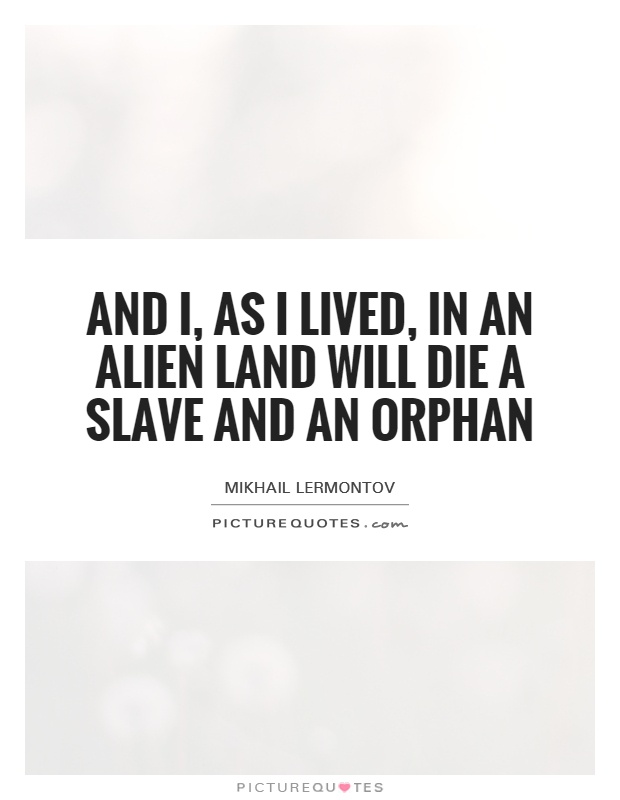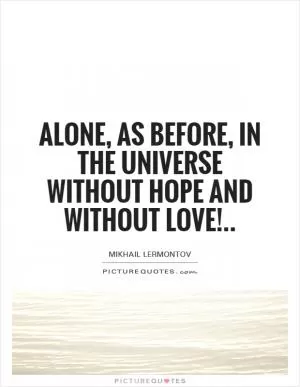And I, as I lived, in an alien land Will die a slave and an orphan

And I, as I lived, in an alien land Will die a slave and an orphan
Mikhail Lermontov, a prominent Russian poet and novelist, is known for his profound and melancholic works that often explore themes of alienation, exile, and the human condition. The quote “And I, as I lived, in an alien land Will die a slave and an orphan” encapsulates the sense of displacement and despair that permeates much of Lermontov’s writing.Born in 1814 in Moscow, Lermontov was the son of a nobleman who died when he was just three years old. This early loss of his father left a profound impact on Lermontov, who often felt like an orphan throughout his life. Additionally, Lermontov’s rebellious nature and outspoken views on social and political issues led to his exile from the Russian court and ultimately his banishment to the Caucasus region, where he served in the military.
In the Caucasus, Lermontov experienced firsthand the harsh realities of war and the brutal treatment of the local population by the Russian authorities. This experience further deepened his sense of alienation and disillusionment with his homeland. The quote “And I, as I lived, in an alien land Will die a slave and an orphan” reflects Lermontov’s feelings of being a stranger in a foreign land, a sentiment that is echoed in many of his works.
Lermontov’s poetry and prose often explore the themes of exile, loneliness, and the search for identity in a hostile world. His most famous work, the novel “A Hero of Our Time,” is a psychological portrait of a disillusioned and cynical young man who struggles to find meaning and purpose in a world that seems indifferent to his suffering. The protagonist of the novel, Pechorin, embodies many of the same feelings of alienation and despair that Lermontov himself experienced.












 Friendship Quotes
Friendship Quotes Love Quotes
Love Quotes Life Quotes
Life Quotes Funny Quotes
Funny Quotes Motivational Quotes
Motivational Quotes Inspirational Quotes
Inspirational Quotes